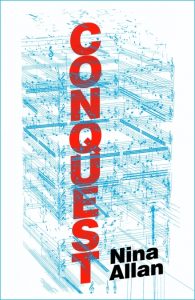The Year in Review 2023 by Gary K. Wolfe
 One of my favorite openings of any novel is that of Italo Calvino’s If On a Winter’s Night a Traveler, in which he describes navigating a bookstore filled with Books You Haven’t Read, including “Books You Needn’t Read”, “Books Read Even Before You Open Them Because They Belong To The Category Of Books Read Before Being Written”, “Books You Mean To Read But There Are Others You Must Read First”, “Books That Everybody’s Read So It’s As Though You Had Read Them, Too”, “Books You’ve Always Pretended To Have Read And Now It’s Time To Sit Down and Really Read Them”, and a dozen or so other categories. It’s a passage that comes to mind every time I sit down to write one of these year-in-review columns. For reviewers, we might add a couple more, like “Books That Really Ought To Be Reviewed, But Preferably By Someone Else”, “Books Sent By The Author With A Wan But Hopeful Note,” “Books That You’ll Never Catch Up On Because They Are the Twelfth Volume In A Trilogy,” “Books You Would Love To Wallow In For Weeks But There’s A Deadline,” “Novellas Which Suddenly Look Appealing Because That Deadline Is Now Three Days Away.” Much as I might have enjoyed the comparative handful of SFF books I reviewed (47 last year), I can’t help but feel the baleful gaze of other books I ought to have read – or, as Calvino puts it, “the books that looked at you, with the bewildered gaze of dogs who, from their cages in the city pound, see a former companion go off on the leash of his master” (the wonderful translation is by William Weaver). Fortunately, that’s why Locus always features multiple such essays like this, from multiple viewpoints.
One of my favorite openings of any novel is that of Italo Calvino’s If On a Winter’s Night a Traveler, in which he describes navigating a bookstore filled with Books You Haven’t Read, including “Books You Needn’t Read”, “Books Read Even Before You Open Them Because They Belong To The Category Of Books Read Before Being Written”, “Books You Mean To Read But There Are Others You Must Read First”, “Books That Everybody’s Read So It’s As Though You Had Read Them, Too”, “Books You’ve Always Pretended To Have Read And Now It’s Time To Sit Down and Really Read Them”, and a dozen or so other categories. It’s a passage that comes to mind every time I sit down to write one of these year-in-review columns. For reviewers, we might add a couple more, like “Books That Really Ought To Be Reviewed, But Preferably By Someone Else”, “Books Sent By The Author With A Wan But Hopeful Note,” “Books That You’ll Never Catch Up On Because They Are the Twelfth Volume In A Trilogy,” “Books You Would Love To Wallow In For Weeks But There’s A Deadline,” “Novellas Which Suddenly Look Appealing Because That Deadline Is Now Three Days Away.” Much as I might have enjoyed the comparative handful of SFF books I reviewed (47 last year), I can’t help but feel the baleful gaze of other books I ought to have read – or, as Calvino puts it, “the books that looked at you, with the bewildered gaze of dogs who, from their cages in the city pound, see a former companion go off on the leash of his master” (the wonderful translation is by William Weaver). Fortunately, that’s why Locus always features multiple such essays like this, from multiple viewpoints.
First, a few random observations: It was a surprisingly good year for that creepy old occultist Aleister Crowley, who showed up or at least got name-checked in novels by Silvia Moreno-Garcia, Wole Talabi, T. Kingfisher, and Cadwell Turnbull. He’s been popping up in fantasy and horror stories so often in the past few years that his farewell tour is now longer than Elton John’s.
As if we didn’t already have enough bad 1950s science fiction to forget, both Nina Allan’s Conquest and Lavie Tidhar’s The Circumference of the World offered up their own apocryphal 1950s SF novels as narrative MacGuffins, in the service of very good novels which make sophisticated metafictional observations about how SF and its various cultural spinoffs have infected our imaginations for the past century. Meanwhile, Tobias Buckell’s A Stranger in the Citadel presented itself as a far-future descendant of one of the actual classics of the 1950s, Bradbury’s Fahrenheit 451, and its chilling mantra of “Thou shalt not suffer a librarian to live” earns some sort of prize for getting uncomfortably close to actual headlines.
There never seems to be a shortage of haunted house tales, but this year seemed especially strong, with Elizabeth Hand’s A Haunting on the Hill, Alix E. Harrow’s Starling House, T. Kingfisher’s A House with Good Bones, and a couple of titles I didn’t see by Grady Hendrix and others. Hand’s novel was the only family-authorized “sequel” to the famous Shirley Jackson title, but apart from the setting, it was pure Hand.
 As the Hand novel might suggest, it was also a good year for stories based on other stories, with some classic fairy and folk tales reinvented by Kelly Link, Jane Yolen, Theodora Goss, Kelly Barnhill, T. Kingfisher, and Catherynne M. Valente, and Christopher Barzak “altered” famous stories from Poe to Fitzgerald in Monstrous Alterations.
As the Hand novel might suggest, it was also a good year for stories based on other stories, with some classic fairy and folk tales reinvented by Kelly Link, Jane Yolen, Theodora Goss, Kelly Barnhill, T. Kingfisher, and Catherynne M. Valente, and Christopher Barzak “altered” famous stories from Poe to Fitzgerald in Monstrous Alterations.
Story collections seemed especially strong, with important retrospectives from Peter Beagle, Michael Swanwick, Catherynne M. Valente (only Volume One!), K.J. Parker, Caitlín R. Kiernan, Jane Yolen, Theodora Goss, and Howard Waldrop, and important posthumous collections from Gene Wolfe, Tom Reamy, James Tiptree, Jr., and Joanna Russ (in the Library of America, no less!). Kelly Link’s White Cat, Black Dog may have been the most important high-profile collection of the year, but the titles from Barzak, Sarah Pinsker (Lost Places), Garth Nix (Sir Hereward and Mr. Fitz), E. Lily Yu (Jewel Box), and Kij Johnson (The Privilege of the Happy Ending) were excellent examples of the unique voices of these writers. I was surprised to discover that I’d actually reviewed more story collections than SF novels in 2023
Self-appointed genre border guards were challenged by at least a couple of high-profile novels. Nicola Griffith’s historical novel Menewood (her sequel to Hild) was one of the major novels of the year, set in a world as immersive as that of any epic fantasy but without the actual fantasy, while Cory Doctorow introduced an aging forensic accountant detective in a new series which began with Red Team Blues, just as loaded with Doctorovian tech-and-system-savvy as his SF, which it isn’t. Christopher Priest’s Airside, with its Ballard-like concerns with celebrities, films, liminal spaces, and aircraft, might or might not be SF depending on your own angle of approach.
While I didn’t review a lot of SF novels, the ones I did see could easily represent the argument that SF has become almost too varied to be contained in the notion of genre. The year began with Annalee Newitz’s, ambitious, far-future, generation-spanning The Terraformers. Essentially a group of linked novellas, its enormous scope recalls an older tradition of planetary romances from Niven to Benford to Cherryh, but informed by both a sense of playfulness (romances involving moose and trains!) and an acute understanding of the long-term effects of altering a whole world’s ecology and the equally long-term effects of predatory capitalism. A few months later, Nina Allan’s Conquest was another of my favorite novels of the year, but with an approach nearly the opposite of Newitz’s, beginning as a simple mystery involving a disappearance. Allan’s novel features a whole tapestry of related narratives, involving everything from Bach and David Bowie to German romantic paintings, underground films, UFO cults, and (as I mentioned earlier) 1950s pulp SF. Lavie Tidhar’s The Circumference of the World focused more on a kind of alternate version of actual SF history, invoking everyone from L. Ron Hubbard to John W. Campbell, Jr., while Connie Willis’s The Road to Roswell, her own long-awaited UFO cult novel, was completely different yet again, and as hilarious a screwball comedy as her readers had hoped for.
The most enjoyable fantasy novel I read was Wole Talabi’s Shigidi and the Brass Head of Obalufon, which somehow combined a whole pantheon of petulant Yoruba gods with a classic heist caper (and a pretty hot romance). Cadwell Turnbull’s We Are the Crisis was a more than worthwhile second volume in his “Convergence Saga” that began with No Gods, No Monsters a couple of years ago, doing what a second volume should do: increasing the stakes, expanding the scope, and prompting us to rethink what we thought we knew from the first novel. Similarly, Liz Williams concluded her magical four-volume Fallows Sisters series with Salt on the Midnight Fire. Silvia Moreno-Garcia, who seems to enjoy visiting different genres as though they were attractions at Disney World, added to her eclectic reputation with Silver Nitrate, set in the world of 1950s Mexican filmmaking and the eldritch forces that may have infiltrated it. Like the excellent haunted house novels I mentioned earlier, it veered toward horror without ever quite being contained by it. So did Lauren Beukes’s Bridge, which managed to come up with the creepiest mechanism for visiting alternate timelines I’ve ever seen (it involves things growing out of your skin). And for those who appreciate the combination of dark humor, wildly unreliable narrators, and gonzo history (I enthusiastically count myself among them), K.J. Parker had a productive year with the collection Under My Skin and an entire trilogy, the Corax series (not to mention a new Tom Holt novel which I didn’t see), though I only got to read Saevus Corax Deals With the Dead and Saevus Corax Captures the Castle.
Novellas continued to enjoy something of a renaissance, with an increasing number of writers weaving them into larger narrative structures implying much more complex worlds. Nghi Vo, for example, extended her award-winning Singing Hills saga to its fourth volume with Mammoths at the Gates, while Peter S. Beagle returned us to the world of The Last Unicorn with The Way Home (actually a classic story, “Two Hearts”, plus a new sequel). Among the standalone novellas which impressed me were Kelly Barnhill’s The Crane Husband, Lee Mandelo’s Feed Them Silence, Fonda Lee’s Untethered Sky, Indra Das’s The Last Dragoners of Bowbazar, T. Kingfisher’s Thornhedge, and Christopher Rowe’s The Navigating Fox.
I saw relatively few anthologies or non-fiction works, but even taking into account obvious (and totally unapologetic) biases, I think Jonathan Strahan’s The Book of Witches was among the outstanding original anthologies of the year. Alvaro Zinos-Amaro’s book-length series of interviews Being Michael Swanwick felt like an extended bar conversation with one of our most original writers (much in the spirit of Swanwick’s own Being Gardner Dozois a few years ago), and Niall Harrison’s All These Worlds: Reviews and Essays was the best collection of reviews and essays I saw during the year, from one of our most astute critics. I can’t begin to list all the important titles I didn’t see – all those puppies left behind in the pound (I refrain from calling them sad) while I trotted off with my monthly assignments – but fortunately my fellow Locus reviewers paid attention to a lot of them. As always, keeping up the increasingly absurd pretense of knowing what’s actually going on in this field depends not only on what I’ve read (or pretended to have read), but what other reviewers have told me about. Thanks, colleagues!
Gary K. Wolfe is Emeritus Professor of Humanities at Roosevelt University and a reviewer for Locus magazine since 1991. His reviews have been collected in Soundings (BSFA Award 2006; Hugo nominee), Bearings (Hugo nominee 2011), and Sightings (2011), and his Evaporating Genres: Essays on Fantastic Literature (Wesleyan) received the Locus Award in 2012. Earlier books include The Known and the Unknown: The Iconography of Science Fiction (Eaton Award, 1981), Harlan Ellison: The Edge of Forever (with Ellen Weil, 2002), and David Lindsay (1982). For the Library of America, he edited American Science Fiction: Nine Classic Novels of the 1950s in 2012, with a similar set for the 1960s forthcoming. He has received the Pilgrim Award from the Science Fiction Research Association, the Distinguished Scholarship Award from the International Association for the Fantastic in the Arts, and a Special World Fantasy Award for criticism. His 24-lecture series How Great Science Fiction Works appeared from The Great Courses in 2016. He has received six Hugo nominations, two for his reviews collections and four for The Coode Street Podcast, which he has co-hosted with Jonathan Strahan for more than 300 episodes. He lives in Chicago.
This review and more like it in the February 2024 issue of Locus.
 While you are here, please take a moment to support Locus with a one-time or recurring donation. We rely on reader donations to keep the magazine and site going, and would like to keep the site paywall free, but WE NEED YOUR FINANCIAL SUPPORT to continue quality coverage of the science fiction and fantasy field.
While you are here, please take a moment to support Locus with a one-time or recurring donation. We rely on reader donations to keep the magazine and site going, and would like to keep the site paywall free, but WE NEED YOUR FINANCIAL SUPPORT to continue quality coverage of the science fiction and fantasy field.
©Locus Magazine. Copyrighted material may not be republished without permission of LSFF.







